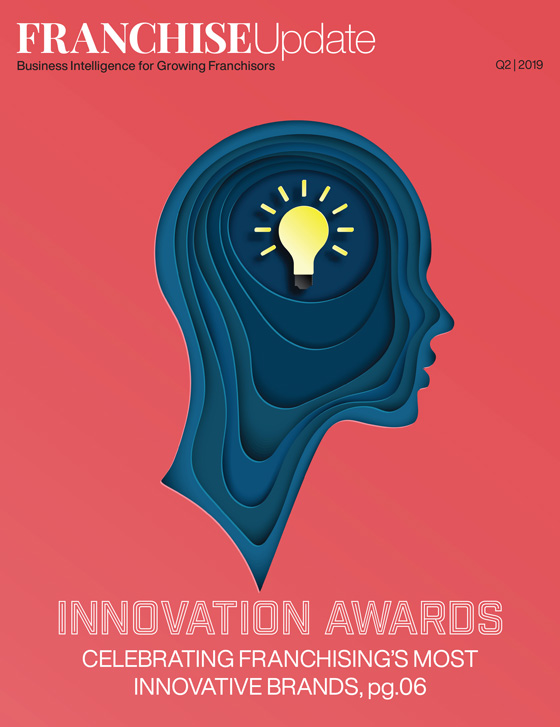Building for Growth: Ready to Scale, or Ready to Fail?

There are transition points as franchises grow. Suddenly (or so it seems), the entire system is different from what it was at the previous stage. Your ability to transition from one stage to the next will determine your survival and success.
The way you run a franchise system with 10 franchisees is totally different from how you run one with 250. I think most people get that. But in practical terms, whatever stage you're in, think about what will be different at the next stage, and begin to adapt now.
Stages of franchise size and growth
Startup (1 to 5 franchisees). At this stage, your franchise system is extraordinarily entrepreneurial. Everyone knows everyone. The franchisees rely on your support, but their demands are not massive because there aren't too many of them.
Early growth (6 to 25 franchisees). At this stage, you have some growing pains. Because it is no longer workable for every franchise owner to call your CEO on the phone to ask every question or request help, you need well-conceptualized and efficient systems in place. You now must think differently because you are a bigger company. The time to plan for this stage is earlier on, when you have five or fewer units.
Midlife growth (26 to 100 franchisees). Franchises sometimes feel shifts when they have 50 franchises, 75, or 100. To navigate these changes effectively, you already must have the right support systems in place.
Maturity (100 to 1,000+ franchisees). At these numbers, franchises must rely on strong systems and documentation that support franchisees in everything they do, from training to displays and marketing materials.
Adjusting expectations
These transition points are valid for every type of franchise business. You might be wondering why I have not defined an exact number of franchises for some of them. That's because other considerations come into play.
For example, what is the size of your average franchise unit? Their number of employees, profits, costs, and other factors? It is interesting to note that the higher the per-unit sales and profits, the earlier the transitions happen between the stages listed above. For example, five locations that each generate $5 million in sales are going to require more involvement from the franchisor than five locations that each generate $500,000 in sales. That only makes sense, but well-run franchising companies understand this and plan their growth accordingly.
How do you plan to grow to scale?
Let's assume you would like to grow your franchise, move to the next growth stage, and make it even more successful. Here are two critical issues to consider:
- Are you set up to scale because you have the organizational structure and people in place to grow?
- Or are you set up to fail because you are overtaxing your people and your resources, so growth is impossible?
If you don't have the systems and people in place, and push forward to grow your franchise anyway, you could cause it to collapse and fail. I have seen that danger arise in companies, and I believe you have too. One such franchise sold so effectively that its stores were running out of inventory! Without inventory, it was impossible to sell. Because it didn't have the operational infrastructure to deliver the products sold, it experienced a lean period until it could resolve its supply chain issues.
The critical role of training
Additionally, you have to look at training, because franchises that do not have good training cannot scale. Training, in fact, is the heartbeat of any growing enterprise. Through training, you build consistency throughout your system and ensure that your people are ready to assume new responsibilities as you grow and become competent as quickly as possible.
So, are you ready to scale, or ready to fail?
Evan Hackel is a 35-year franchising veteran as both a franchisor and franchisee. He is CEO of Tortal Training, a leading training development company, and principal of Ingage Consulting. He is a speaker, hosts "Training Unleashed," a podcast covering training for business, and is author of Ingaging Leadership. Contact him at evanspeaksfranchising.com, follow him at @ehackel, or call 781-820-7609.
Building Blocks That Equip Your Franchise Transition and Grow
- The right people
- Franchise advisory councils
- Franchise business consultants
- Training
- Systems
- Franchise manual and handbook
Share this Feature
Recommended Reading:
FRANCHISE TOPICS
- Multi-Unit Franchising
- Get Started in Franchising
- Franchise Growth
- Franchise Operations
- Open New Units
- Franchise Leadership
- Franchise Marketing
- Technology
- Franchise Law
- Franchise Awards
- Franchise Rankings
- Franchise Trends
- Franchise Development
- Featured Franchise Stories
FEATURED IN

Franchise Update Magazine: Issue 2, 2019








 The franchise listed above are not related to or endorsed by Franchise Update or Franchise Update Media Group. We are not engaged in, supporting, or endorsing any specific franchise, business opportunity, company or individual. No statement in this site is to be construed as a recommendation. We encourage prospective franchise buyers to perform extensive due diligence when considering a franchise opportunity.
The franchise listed above are not related to or endorsed by Franchise Update or Franchise Update Media Group. We are not engaged in, supporting, or endorsing any specific franchise, business opportunity, company or individual. No statement in this site is to be construed as a recommendation. We encourage prospective franchise buyers to perform extensive due diligence when considering a franchise opportunity.